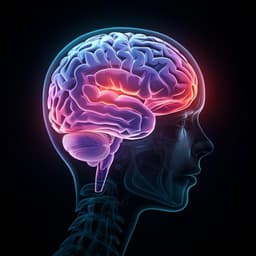
Computer Science
Intuitive physics learning in a deep-learning model inspired by developmental psychology
L. S. Piloto, A. Weinstein, et al.
Explore how current AI systems are bridging the gap in common sense understanding of intuitive physics, a skill even young children master. This groundbreaking research by Luis S. Piloto, Ari Weinstein, Peter Battaglia, and Matthew Botvinick introduces a novel machine-learning dataset and a deep-learning system, PLATO, which learns intuitive physics from visual data.
Related Publications
Explore these studies to deepen your understanding of the subject.







